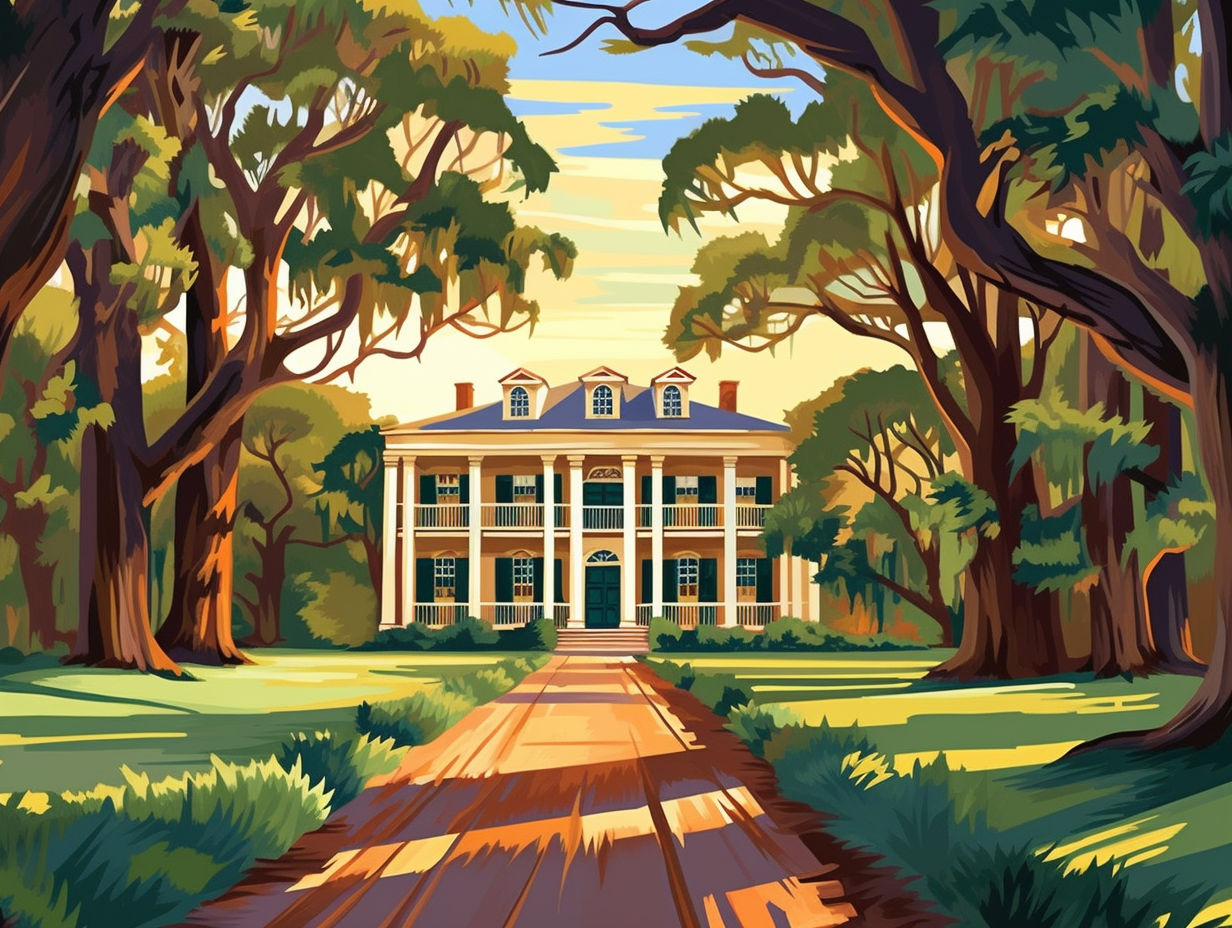Discover the Top 15 Fun Facts About the Third Amendment: Unveiling the Quirky Side of History

1. No more free room and board for soldiers
Lights, camera, no more free room and board action: The Third Amendment, born from the frustration caused by the Quartering Act, put a stop to the shenanigans of housing soldiers without consent during peacetime and ensuring any wartime quartering followed proper legal procedures; a result of the combined efforts of Virginia, New York, North Carolina, and of course, a sprinkle of American Revolution!
Source => constitution.congress.gov
2. Netflix and pizza night soldier-free
Imagine having to share your Netflix and pizza nights with a soldier you didn't invite: It's a no-go thanks to the Third Amendment of the United States Constitution, which prohibits quartering soldiers in private homes without the owner's consent, even during times of war. This came as a response to the colonists' resentment of the British Quartering Acts, and while it doesn't ban soldiers from private homes altogether, it does require proper legal procedures and consent, except in extenuating circumstances like emergencies or military operations.
Source => constitution.congress.gov

Did you know the Bill of Rights was inspired by ancient pens of freedom? Discover how the ink of liberty shaped these first ten amendments and granted us essential civil liberties! 🖋️✨
=> Fun Facts about The-Bill-Of-Rights
3. A tale of the elusive Third Amendment
Lend me thine ears, good citizens, for an amusing tale upon the rarely-discussed Third Amendment: Lo and behold, in the realm of Engblom v. Carey, our noble court ventured where none had gone before, interpreting this elusive amendment and laying down three cornerstone principles that protected not only against federal forces, but state militias too, and applying to the sovereign states as well as the Congress, and granting sanctuary to those with power over property access.
Source => en.wikipedia.org
4. The lonely, rarely-mentioned amendment
You know it's a lonely amendment when even the Supreme Court doesn't give it much attention: The Third Amendment, ratified in 1791, has only been mentioned a few times by the U.S. Supreme Court, such as in the 1952 case of Youngstown Sheet & Tube Company v. Sawyer, where it was used to demonstrate that the president cannot seize private property without congressional approval. While it did see some action in lower courts like Engblom v. Carey (1982) which established National Guard members as "soldiers," a 2015 case in Nevada ruled that police officers do not fall under the category of "soldiers" in the contextensitive to the Third Amendment.
Source => history.com

5. Founding Fathers preventing surprise soldier sleepovers
When a soldier shows up with a suitcase and a toothbrush at your doorstep, don't worry – the Founding Fathers have your back: The Third Amendment prevents citizens from being forced to quarter soldiers in their homes without consent, reflecting the Founders' opposition to standing armies during peace and ensuring the protection of individual rights through limited government power.
Source => nccs.net
6. Redcoat slumber party protection
In case of a surprise Redcoat slumber party, one amendment has got you covered: The Third Amendment protects American citizens from being forced to house soldiers in their private homes during times of peace or war without their consent, a direct response to British military occupation practices during colonial times. Though it's rarely come up in court and lacks a Supreme Court affirmation, this underdog of an amendment paved the way for the Fourth Amendment, guarding us from unreasonable searches and seizures.
Source => annenbergclassroom.org
7. When the Third Amendment knocks on your door
When the Third Amendment knocks on your door, you best open up and let it in: The amendment, which usually goes unnoticed, delivered a punch in the 1982 case Engblom v. Carey, where quartering state-controlled National Guard soldiers in apartments during peacetime was declared a violation of tenants' Third Amendment rights and established crucial principles, like its application to state authorities and property access control.
Source => en.wikipedia.org
8. Founding Fathers' Airbnb rules
Imagine if Airbnb was run by the Founding Fathers and the “guests” were uninvited soldiers, trying to bunk down in your spare bedroom: The Third Amendment of the US Constitution actually prevents such a scenario by prohibiting the government from forcing homeowners to provide quarters for soldiers during times of peace without consent, a rule inspired by colonial grievances against British military practices during the Revolutionary War.
Source => constitution.congress.gov
9. The wallflower of the Bill of Rights
Talk about "home is where the heart is" – more like "home is where the Third Amendment is"! If the Bill of Rights was a party, the Third Amendment would be the wallflower with the occasional unexpected quip: Did you know it prohibits the quartering of soldiers in private homes without the owner's consent, making it the least relevant of the first ten amendments in the United States Constitution? Its origins lie in British soldiers crashing the American revolutionary pad, but these days, it prefers to chill on the sidelines and sip sparkling water, occasionally sparking scholarly debate over its potential impact on the distinction between homes and other private property in government seizure cases. Cheers!
Source => papers.ssrn.com

10. Third Amendment's well-guarded castle
Who needs a guest bedroom anyway? The Third Amendment has got your back when unexpected "military" visitors come a-knockin': This amendment was created in response to the reviled Quartering Act of 1765, which required American colonists to open their doors to British troops and provide them with boarding, food, and other necessities – The Third Amendment now stands as a constitutional safeguard against the government trying to pull that kind of move ever again, ensuring our homes remain our well-guarded castles.
Source => businessinsider.com
11. The grand entrance of the unsung hero
While the Third Amendment might not get invited to all the constitutional parties (like its more popular siblings, the First or Second Amendments), it sure knows how to make a grand entrance when it decides to show up: This unsung hero of the Bill of Rights was introduced by James Madison in 1789 and ratified in 1791, serving as a safeguard against the forced quartering of soldiers in private homes – a reaction not only to British Quartering Acts, but also as a civil liberty protection in peacetime for the good ol' American citizens.
Source => en.wikipedia.org
12. No soldier knocking on your door
Knock, knock, who's there? Not a British soldier seeking quarter in your house, that's for sure: The Third Amendment of the U.S. Constitution prevents the government from forcing homeowners to house soldiers during peacetime without consent, ensuring that Americans enjoy privacy in their homes, all while foiling attempted sleepovers by military personnel.
Source => law2.umkc.edu
13. Lemons and quartered soldiers
When life hands you lemons, make sure they're not quartered soldiers: The Third Amendment in the Constitution forbids the quartering of troops in private homes during times of peace, thanks to our Founding Fathers' ability to hold a colonial grudge against British Quartering Acts and their commitment to protecting individual property rights.
Source => tennessean.com
14. The least litigated amendment
You won't find this amendment throwing a wild house party or causing any social media buzz: The Third Amendment is the least litigated amendment in the U.S. Constitution, perhaps because its clear language and the infrequent need to address the quartering of soldiers during peacetime keeps it from shaking things up!
Source => law.cornell.edu

15. Third Amendment's reaction to uninvited British soldiers
Talk about overstaying their welcome: the Third Amendment to the United States Constitution was created in reaction to British laws that permitted soldiers to crash at citizens' homes without an invite during peacetime! This lesser-known yet pivotal amendment now puts the kibosh on the government trying to force you to host a rowdy military sleepover, unless national security is at stake and war has been declared.
Source => annenbergclassroom.org
Related Fun Facts




















